Health
Sacramento sheriff's office faces questions on mental health response policy
Sacramento sheriff’s office faces questions on mental health response policy – CBS Sacramento Watch CBS News Madisen Keavy reports. View CBS News In Be the first to know Get browser notifications for breaking news, live events, and exclusive reporting. Not Now Turn On 8



Watch CBS News
Be the first to know
Get browser notifications for breaking news, live events, and exclusive reporting.
Health
Athletics take road win streak into game against the Tigers
Athletics (32-48, fifth in the AL West) vs. Detroit Tigers (49-30, first in the AL Central) Detroit; Tuesday, 6:40 p.m. EDT PITCHING PROBABLES: Athletics: Luis Severino (2-7, 4.42 ERA, 1.34 WHIP, 66 strikeouts); Tigers: Tarik Skubal (8-2, 2.06 ERA, 0.85 WHIP, 117 strikeouts) BETMGM SPORTSBOOK LINE: Tigers -299, Athletics +237; over/under is 7 runs BOTTOM […]



Athletics (32-48, fifth in the AL West) vs. Detroit Tigers (49-30, first in the AL Central)
Detroit; Tuesday, 6:40 p.m. EDT
PITCHING PROBABLES: Athletics: Luis Severino (2-7, 4.42 ERA, 1.34 WHIP, 66 strikeouts); Tigers: Tarik Skubal (8-2, 2.06 ERA, 0.85 WHIP, 117 strikeouts)
BETMGM SPORTSBOOK LINE: Tigers -299, Athletics +237; over/under is 7 runs
BOTTOM LINE: The Athletics will try to keep a three-game road win streak going when they face the Detroit Tigers.
Detroit has a 26-12 record at home and a 49-30 record overall. The Tigers have the fifth-best team ERA in baseball at 3.50.
The Athletics have a 32-48 record overall and a 17-21 record in road games. The Athletics have hit 98 total home runs to rank fourth in the AL.
The matchup Tuesday is the first meeting this season between the two clubs.
TOP PERFORMERS: Riley Greene leads the Tigers with 37 extra base hits (20 doubles and 17 home runs). Javier Baez is 14 for 35 with two doubles, a triple, three home runs and six RBIs over the past 10 games.
Brent Rooker leads the Athletics with 15 home runs while slugging .482. Luis Urias is 11 for 36 with two doubles, a home run and three RBIs over the last 10 games.
LAST 10 GAMES: Tigers: 5-5, .262 batting average, 5.16 ERA, outscored by three runs
Athletics: 6-4, .237 batting average, 3.96 ERA, outscored by seven runs
INJURIES: Tigers: Jackson Jobe: 60-Day IL (flexor), Jason Foley: 60-Day IL (shoulder), Alex Cobb: 60-Day IL (hip), Matt Vierling: 10-Day IL (shoulder), Reese Olson: 15-Day IL (finger), Ty Madden: 60-Day IL (shoulder), Jose Urquidy: 60-Day IL (elbow), Alex Lange: 60-Day IL (lat)
Athletics: Gunnar Hoglund: 60-Day IL (hip), Grant Holman: 15-Day IL (shoulder), Seth Brown: 10-Day IL (elbow), Shea Langeliers: 10-Day IL (oblique), Miguel Andujar: 10-Day IL (oblique), Zack Gelof: 60-Day IL (hand), Jose Leclerc: 60-Day IL (shoulder), Brady Basso: 60-Day IL (shoulder), Ken Waldichuk: 60-Day IL (elbow), Luis Medina: 60-Day IL (elbow)
The Associated Press created this story using technology provided by Data Skrive and data from Sportradar.
Health
Eating Disorders in Young Athletes
Playing sports has a ton of benefits during adolescence. It can boost self-esteem, provide socialization opportunities and improve physical fitness. But for some teens — especially those who play at an elite level — sports can be a source of pressure and lead to changes in eating patterns and behaviors that may become problematic. Lucy […]

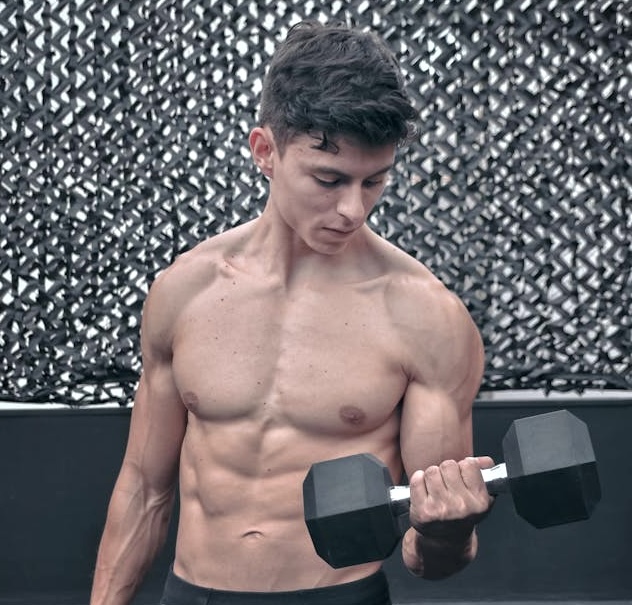
Playing sports has a ton of benefits during adolescence. It can boost self-esteem, provide socialization opportunities and improve physical fitness. But for some teens — especially those who play at an elite level — sports can be a source of pressure and lead to changes in eating patterns and behaviors that may become problematic.

“Elite athletes often have a desire to be the best in their chosen sport — it’s what makes them great and drives them to excel. But that mentality can also affect how they view their body, weight and interaction with food,” says Lucy Lot, MD, an MU Health Care pediatrician and adolescent medicine physician. “Even if your teen doesn’t compete at an elite level, the culture around some sports is traditionally weight-focused.”
Some teen athletes are more likely than others to develop eating issues. According to research, eating disorders are more common among elite youth athletes compared to the general population. The athletes at highest risk include:
- Athletes who play sports that value leanness or require weigh-ins
- Athletes with a higher body mass index (BMI)
- Females
“It’s cause for concern any time a teenager develops maladaptive behaviors with food intake and weight control, such as taking diet or water pills, restricting food intake, binge eating or exercising beyond what’s required for chosen sport,” Dr. Lot says. “However, eating issues are not as easy to spot as some might think, especially at the outset.”
Here’s what you need to know:
How Eating Disorders Affect Teen Athletes
Teens who have eating disorders — regardless of whether they are athletes — will experience a lot of mental and physical effects. Their unhealthy eating patterns can result in inadequate nutrition and affect hormonal function.
Athletes who don’t fuel their bodies properly may develop relative energy deficiency in sports (RED-S), formerly called female athlete triad. This syndrome, which affects males and females, is marked by hormonal changes and impacts several body systems and functions.
Teen athletes affected by RED-S may experience symptoms that affect their health and athletic performance, including:
- Decreased muscle mass, causing slower recovery, coordination issues and decreased performance
- Mental health changes, including depression, anxiety and increased irritability
- Fatigue and dizziness, associated with poor nutrition
- Low testosterone in males
- Menstrual issues in women, including irregular periods or absence of menstruation
- Weakened bones, which increases the risk of a sports-related injury
“The health effects of eating issues, and how long those effects last, depend on the severity of the condition,” Dr. Lot says. “Eating disorders impact athletic performance in ways young athletes can’t imagine. For example, eating disorder can cause the heart to lose up to 25% of its muscle mass, leaving it unable to effectively pump much needed blood to support physical activity.”
Signs of Eating Disorders in Teens
Don’t assume that because your teen athlete is a healthy weight that they don’t have problem eating, says Dr. Lot. While your child may not have a specified eating disorder, they may have disordered eating — unhealthy eating patterns that can be a precursor to an eating disorder.
It can be challenging to notice signs of disordered eating when your teenager is independent and eating alone or out with friends. Changes in weight is one of the easiest sign to notice, but it’s not necessarily the earliest. Parents should also watch for:
- Eating in secret or refusing to join the family for meals
- Hyperfocus on weight that may include comments about weight, meticulously counting calories and tracking every bite eaten
- Menstrual changes in females
- Mood changes such as increased anger, irritability or sadness
- Poor endurance if endurance has not been a problem previously
- Sensitivity to cold, and suddenly having cold hands and feet
- Skipping meals, often followed by eating large portions or binging
“The good news is that with early recognition and intervention, your teen can go from disordered eating back to a healthy relationship with food and weight before it evolves into an eating disorder,” Dr. Lot says. “It is critical to recognize the signs early.”
How to Help Your Teen Athlete Eat Healthy
Modeling healthy eating behavior is the best way to promote healthy eating habits in children. However, athletes can have different nutritional needs depending on the intensity and duration of their daily physical activity.
To help your athlete meet those needs and ensure they are eating healthy, Dr. Lot recommends:
- Discuss nutrition: Make sure your teen understands the value of fueling their body with macronutrients, vitamins and minerals. Encourage them to take a nutrition class at school if possible.
- Engage your child’s pediatrician: Contact your pediatrician before your child’s appointment so they can discuss diet and nutrition with your teen.
- Consider speaking with a sports dietitian: Especially for high level athletes needing significant dietary adjustment during sport season. These nutrition experts can analyze your teen’s energy intake and expenditure. They can then use that information to coach you and your child and recommend a balanced and healthy eating plan.
- Focus conversations with your teen around health: If you have concerns about your child’s eating habits, try not to focus on their weight. Instead, ask how they are feeling, talk about any changes you’ve seen in their mood, attitudes, relationships or performance. Seek to understand what is going on and offer dietary and health advice.
- Have regular touchpoints and meals together: Intentionally connecting with your child daily, including during some mealtimes, makes it more likely that you’ll recognize an emerging concern before it becomes a problem.
“Remind your teen that just because someone is a social media influencer or working in a health store does not make them experts on nutrition,” Dr. Lot adds. “If your teen has questions on how to fuel their body, a health care professional is always the best source of information.”
What to Do If You Suspect Your Teen Athlete Has an Abnormal Relationship with Food
If you are worried about your child’s eating behavior, start with an open and honest discussion. Have the conversation during a relaxed time, when your teen is less likely to be defensive and not needing to rush off somewhere. Let your child know that your concerns are less about weight and more about their health, happiness and general well-being. And if you think it would be helpful, consider sharing any personal experience with disordered eating and the journey you had to a healthier relationship with food.
If the signs of disordered eating are persistent or getting worse, or you’re concerned about an eating disorder, Dr. Lot says your child’s primary care provider should be your first call.
“Don’t wait to engage a medical professional if you sense something is off with your child’s eating pattern or nutrition,” Dr. Lot says. “Children and teens who have healthy a relationship with food are more likely to continue the trend into adulthood.”
Next Steps and Useful Resources
Health
Aaliyah Jenkins named 2024
Story Links All-Time Ruth Russell Award winners RENO, Nev. – Aaliyah Jenkins’ added yet another jewel to the crown of her Nevada Softball career, being named Nevada Athletics’ 2024-25 recipient of the Ruth Russell Award. Jenkins is the third Wolf Pack softball student athlete to claim the honor in the last five years, following Sadaria McAlister […]
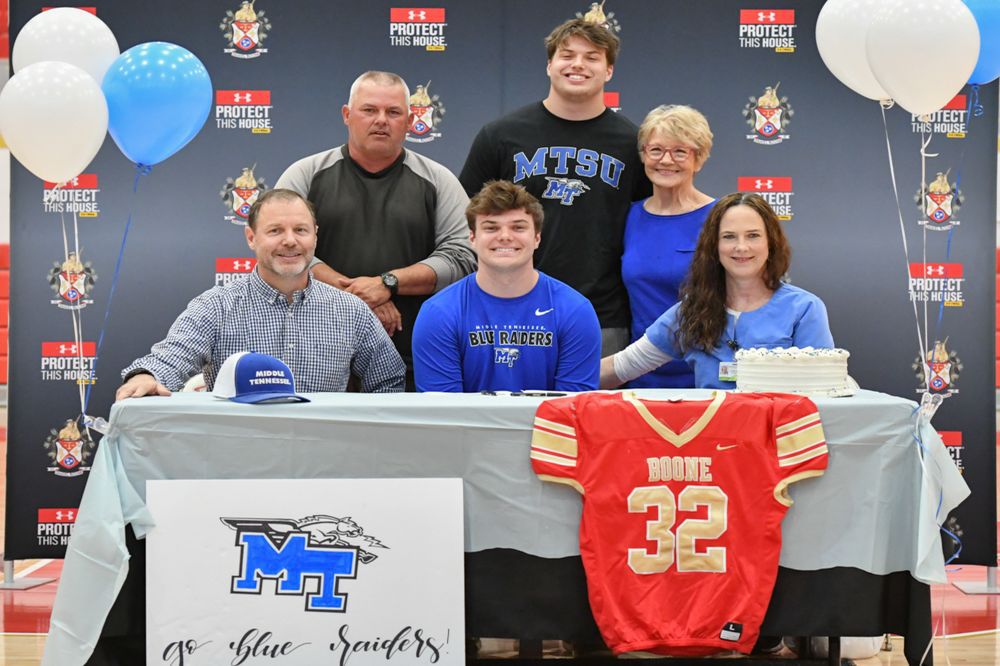


RENO, Nev. – Aaliyah Jenkins’ added yet another jewel to the crown of her Nevada Softball career, being named Nevada Athletics’ 2024-25 recipient of the Ruth Russell Award.
Jenkins is the third Wolf Pack softball student athlete to claim the honor in the last five years, following Sadaria McAlister (2021) and Chelie Senini (2024).
Established in 1996 and named for former Nevada Director of Women’s Athletics Ruth Russell (1948-69), the award is given out annually to Nevada’s top female student athlete in their final year of eligibility and in good academic standing.
Jenkins was named Nevada’s first All-American since 2008 when she earned second-team honors from D1Softball in May. Her four-year Wolf Pack career (2022-25) included four All-Mountain West honors, three to the First Team (2022, 2024-25), and being named Mountain West Freshman of the Year in 2022.
She capped her final season by being voted Mountain West Player of the Year and helping lead Nevada to its first Mountain West regular season championship in 2025.
Jenkins’ career numbers are among the best of any member of the program. She wrapped her career as the program’s all-time leader in home runs (54), RBIs (196), total bases (447), slugging percentage (.719), while also ranking in the Wolf Pack top 10 in runs (second, 171), walks (second, 95), stolen bases (second, 83), doubles (fourth, 52), triples (t-fourth, 9), on-base percentage (fifth, .442), hits (sixth, 215), batting (eighth, .346), games played (t-ninth, 212), and games started (10th, 209).
Jenkins put up arguably the best individual season in program history in 2025, as along with her All-America recognition and Mountain West honors she was named to the NFCA All-Mountain First Team. The Tracy, Calif., native ranked in the top 50 nationally in slugging percentage (11th, .916), batting average (13th, .446), total bases (14th, 152), on-base percentage (18th, .546), runs (20th, 64), doubles (21st, 17), stolen bases (22nd, 31), RBIs (44th, 60), and hits (45th, 74).
The Tracy, Calif. native won five Mountain West Player of the Week awards in 2025, the first player to do so in 20 years. In conference regular-season games, Jenkins led the Mountain West in batting average (.522), on-base percentage (.607), slugging percentage (1.159), runs (29), hits (36), RBI (32), triples (four), home runs (10), total bases (80), and stolen bases (16). Jenkins set a Mountain West senior record with her batting average, slugging percentage, on-base percentage, triples, and stolen bases.
Health
Australia needs a national, Independent Professional Players Association for Olympic and …
Earlier this month, I shared my thoughts on LinkedIn about the need for a funded professional players association to address the lack of structural protection and representation for athletes in Australian Sports Commission (ASC), funded sports. The response was overwhelming. What stood out most was the number of prominent voices who have competed at the […]


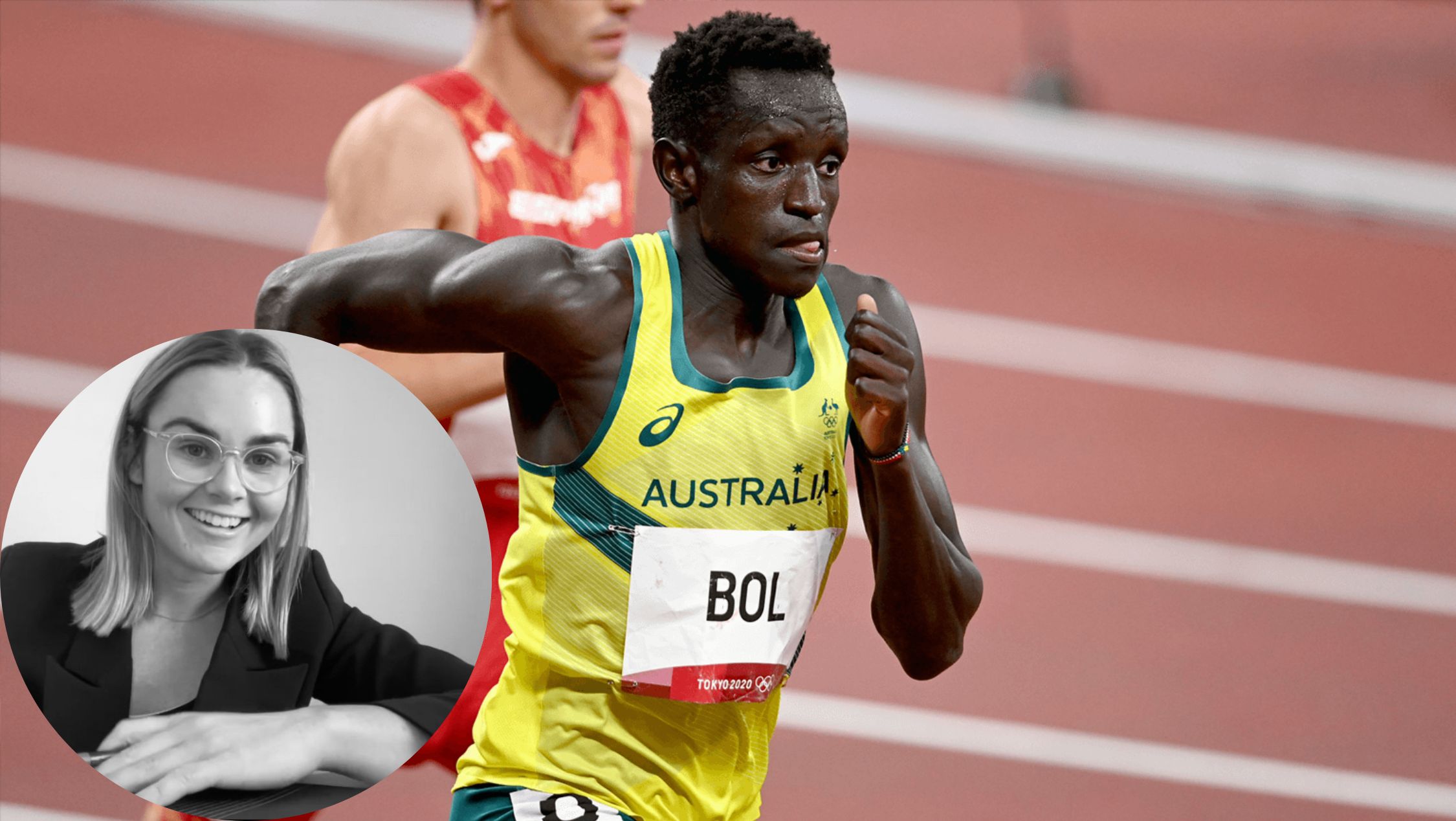
Earlier this month, I shared my thoughts on LinkedIn about the need for a funded professional players association to address the lack of structural protection and representation for athletes in Australian Sports Commission (ASC), funded sports. The response was overwhelming.
What stood out most was the number of prominent voices who have competed at the elite level, particularly our Olympic and Paralympians, who echoed the same sentiment; we have a serious gap.
Equally powerful were the endorsements from professionals working in athlete welfare, human rights, and sport integrity, who confirmed what many already know, the current frameworks under the ASC and Sport Integrity Australia (SIA), while important, are not enough on their own.
Regrettably, what is clear from the response is that many who recognise this gap do so because they’ve seen the consequences firsthand. Either through their own experiences or by through providing services and support to others who have fallen through the cracks.
The Case for Change
Many of our top athletes funded by the ASC, the majority of which are Olympic and Para-Olympic sports train and compete at a professional level yet aren’t recognised or protected as such.
Unlike players in the AFL, NRL or cricket, who are employees, these athletes often sign short term agreements with their National Sporting Organisations (NSOs), leaving them without the legal rights or protections offered by the Fair Work Act.
This creates a unique and outdated imbalance: Athletes operate like employees but without the bargaining power or basic safeguards of one.
Independent reviews, including the Australian Human Rights Commission’s review into Gymnastics Australia and the Athlete Wellbeing Study, reveal consistent, troubling themes:
- Athletes fear speaking out due to retribution
- Complaint pathways lack trust and credibility
- Power imbalances between athletes and sporting bodies remain unchecked
These issues aren’t unique to gymnastics. Similar concerns have emerged from reviews into other ASC-funded sports, including Athletics Australia, Rowing Australia, Swimming Australia, Hockey Australia and Volleyball Australia, all highlighting governance failures, cultural issues, and the lack of trusted, independent athlete representation.
That’s why I believe it’s time for a funded, independent Professional Players Association, separate from SIA and focused solely on the rights and welfare of ASC supported athletes.
It would be a nationally endorsed body that automatically represents all ASC funded sports, particularly those that currently lack formal, professional athlete representation.
This body would:
• Provide independent representation and advocacy
• Support athletes in disputes, contracts, and wellbeing
• Help level the playing field between athletes and institutions
Professional players associations have proven their value time and again.
We’ve seen them fight for pay equity, secure maternity and mental health protections, and give athletes a real voice. NRL, basketball, AFL, and others have shown what’s possible when representation is resourced and respected.
With real athlete buy-in and professional leadership, this national body would compel sporting organisations to listen, negotiate, and improve conditions across the board.
This isn’t a critique of what exists it’s an acknowledgment that athletes deserve the same protection, voice, and respect as their professional peers in broadcast sports.
If the training, commitment, and performance expectations are the same, then the support, rights, and representation should be too, the fact that some sports have more money shouldn’t determine which athletes are better protected.
A Call for Change
The response to my LinkedIn post highlight that this isn’t an isolated concern. There is a consensus across athletes, administrators, and experts that we need an additional service to operate within the current model.
A call to action is needed, both from current and former athletes who have experienced the gaps, who carry the stories and who can substantiate through their own experiences just how much a professional players association is needed.
Again, this is not about replacing what exists, it’s in addition to, and purely for the purpose of addressing issues that should not be ignored.
About the Author
Kalindi Commerford is a practicing lawyer and former Hockeyroo who also served as the players representative on the Australian Hockey Players Association from 2018-2022.
Don’t miss out on the latest in sports business – Subscribe today to the free Ministry of Sport newsletter and stay ahead of the game. For even more exclusive insights, event tickets, professional development and networking events, become a MoS Member today!.
Health
Elite athletes' secret hydration breakthrough
Elite training facilities worldwide have quietly adopted these sophisticated protocols, which involve strategic fluid manipulation that extends far beyond traditional water consumption. The results speak for themselves: measurable improvements in endurance, enhanced temperature regulation and superior cardiovascular efficiency during competition. This scientific approach to hydration optimization has emerged from rigorous research conducted in sports medicine […]


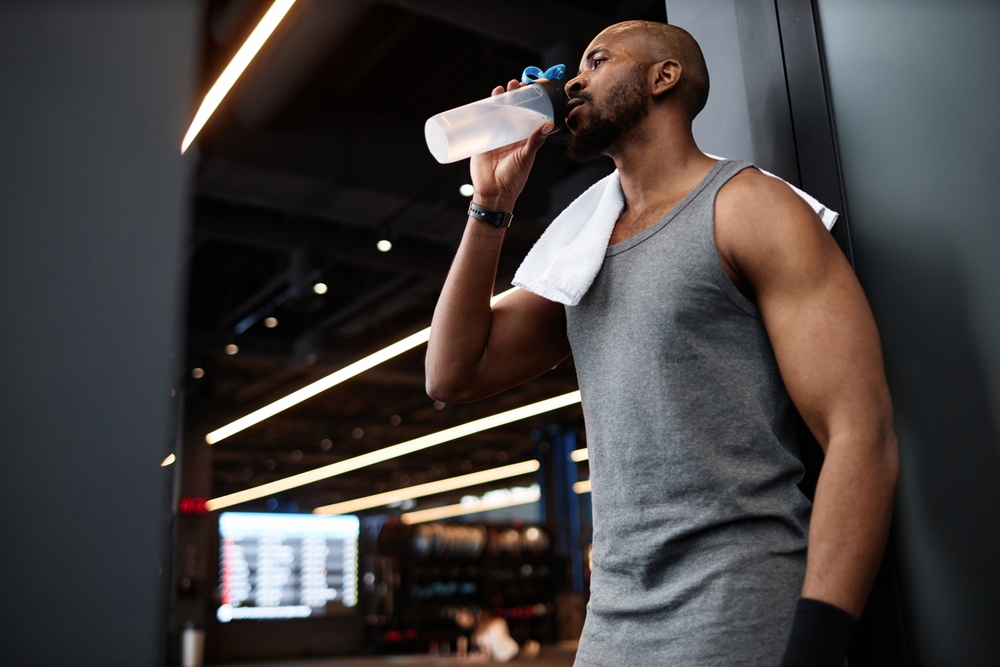
Elite training facilities worldwide have quietly adopted these sophisticated protocols, which involve strategic fluid manipulation that extends far beyond traditional water consumption. The results speak for themselves: measurable improvements in endurance, enhanced temperature regulation and superior cardiovascular efficiency during competition.
This scientific approach to hydration optimization has emerged from rigorous research conducted in sports medicine laboratories, where investigators have uncovered how precisely timed fluid intake can create distinct physiological advantages. The findings challenge decades of accepted hydration practices and offer athletes a proven pathway to unlock previously untapped performance potential.
Revolutionary fluid science transforms performance
Modern research has revealed startling insights about the human body’s response to calculated fluid loading strategies. When executed with precision, these advanced protocols can increase blood plasma volume by approximately 1.5 percent of total body weight, creating measurable advantages that translate directly into competitive success.
The enhanced fluid state delivers cascading benefits throughout multiple body systems. Athletes experience dramatically reduced cardiovascular strain during high-intensity efforts, as expanded blood volume enables more efficient oxygen delivery to working muscles. This physiological enhancement becomes particularly pronounced during extended competitions where maintaining peak output over time determines victory or defeat.
Temperature regulation represents another crucial advantage of strategic hyperhydration. The expanded fluid reserves help athletes maintain lower core temperatures during exertion, preventing the performance-crushing effects of overheating that plague competitors using traditional hydration methods. Enhanced sweat production capabilities create a superior natural cooling system that becomes increasingly valuable as exercise intensity and duration increase.
Athletes implementing these protocols consistently demonstrate superior cognitive function during extended efforts. Mental sharpness remains intact as physical fatigue accumulates, allowing for better tactical decisions and maintained reaction times when competitions reach critical moments.
Precision timing unlocks maximum benefits
The effectiveness of advanced hydration protocols depends entirely on strategic timing across multiple phases of preparation and performance. Sports scientists have mapped five distinct windows that form the backbone of successful implementation, each requiring specific approaches tailored to the body’s evolving needs.
Strategic pre-loading phase
The process begins four hours before intense activity, when athletes consume calculated fluid and electrolyte combinations. Research establishes optimal intake targets of 5 to 7 milliliters per kilogram of body weight during this crucial window, providing sufficient time for absorption and distribution throughout the system.
Maintenance and fine-tuning
Two hours before exercise, focus shifts to preserving elevated hydration while avoiding fluid accumulation that could impair performance. This delicate balance requires athletes to consume smaller volumes at regular intervals, maintaining optimal status without creating discomfort or digestive issues.
Competition readiness
The immediate pre-exercise period involves final adjustments based on individual tolerance and environmental conditions. During activity, replacement strategies must account for ongoing losses while avoiding the serious risks associated with excessive fluid intake.
Recovery optimization
Post-exercise hydration serves dual purposes: restoring fluid balance and preparing the body for subsequent training sessions. This recovery window presents opportunities to support natural repair processes while maintaining the enhanced hydration state for future performance demands.
Electrolyte mastery drives success
Successful hyperhydration transcends simple water consumption to encompass sophisticated electrolyte management. Sodium functions as the primary regulator of fluid distribution, making its precise calibration absolutely essential for protocol effectiveness and athlete safety.
Scientific investigations have established optimal sodium concentrations between 2,990 and 3,772 milligrams per liter of fluid for maintaining proper cellular function. This specific range prevents dangerous fluid shifts that could compromise both performance outcomes and athlete wellbeing.
Elite athletes achieve these targets through strategic nutritional choices rather than relying exclusively on supplements. Consuming sodium-rich broths, soups and specially formulated foods provides steady absorption rates while delivering additional nutrients that support comprehensive performance enhancement.
Personalized protocols maximize individual potential
The most successful hyperhydration strategies account for significant individual variations in physiological response to fluid loading. Body composition influences absorption rates and distribution patterns, while environmental factors such as temperature and humidity dramatically affect ongoing hydration requirements.
Female athletes often require modified approaches due to hormonal fluctuations that impact fluid retention characteristics. Training experience levels also influence adaptation capabilities, suggesting that athletes new to hyperhydration should implement protocols gradually to allow proper physiological adjustment.
Environmental conditions play particularly crucial roles in protocol design. Hot, humid environments accelerate fluid losses through increased sweating, demanding more aggressive replacement strategies. Cooler conditions may permit conservative approaches while maintaining optimal hydration status throughout competition.
Advanced monitoring ensures safety and effectiveness
Successful hyperhydration implementation requires sophisticated monitoring systems to ensure both safety and optimal results. Athletes must track multiple physiological indicators to assess their body’s response and make necessary real-time adjustments.
Regular weight measurements provide objective feedback about fluid retention, while urine color analysis offers immediate visual assessment of hydration status. Heart rate responses during exercise indicate whether protocols are delivering expected cardiovascular benefits, while sweat rate calculations inform replacement needs during activity.
Building championship-level practices
Long-term success demands gradual implementation and consistent monitoring. Athletes should increase fluid intake progressively, allowing physiological adaptation without experiencing performance decrements or safety concerns.
Integration with comprehensive nutritional strategies maximizes effectiveness. Carbohydrate timing affects fluid retention capabilities, while protein consumption influences cellular hydration status. Strategic meal planning ensures all elements work synergistically to support peak performance outcomes.
As sports science advances, hyperhydration stands as a proven method for athletes seeking evidence-based performance improvements. When implemented thoughtfully and monitored carefully, these protocols provide meaningful competitive advantages that help elite performers reach their absolute potential.
Health
(BPRW) The Ad Council, Huntsman Mental Health Foundation and Amazon Announce “The …
(BPRW) The Ad Council, Huntsman Mental Health Foundation and Amazon Announce “The Mind Set” to Support Mental Health Elite Athletes Skylar Diggins, Laurie Hernandez and Chaunté Lowe Appear in National “Love, Your Mind” PSAs to Remind Audiences Why the Mind is the Real MVP (Black PR Wire) New York – The Ad Council, Huntsman Mental Health […]


(BPRW) The Ad Council, Huntsman Mental Health Foundation and Amazon Announce “The Mind Set” to Support Mental Health
Elite Athletes Skylar Diggins, Laurie Hernandez and Chaunté Lowe Appear in National “Love, Your Mind” PSAs to Remind Audiences Why the Mind is the Real MVP
(Black PR Wire) New York – The Ad Council, Huntsman Mental Health Foundation and Amazon Ads have collaborated to launch “The Mind Set,” an interactive experience designed to show audiences how taking care of their mental health can help them reach their goals. As part of the “Love, Your Mind” campaign, “The Mind Set” leverages the stories of three inspiring athletes – Skylar Diggins, Laurie Hernandez and Chaunté Lowe – in national public service advertisements (PSAs) and a new online experience, YourMindIsTheMVP.com.
“The Mind Set” website showcases each athlete’s journey with mental health and allows users to explore “Love, Your Mind” mental health resources like breathing exercises, gratitude journaling, and meditation. Through the campaign activation, users can also engage with mental health resources by saying “Alexa, make my mind the MVP,” to their Echo device or the Alexa app. Users can also explore bespoke Amazon Music playlists inspired by the athletes’ qualities of determination, bravery and resilience.
The new PSAs, directed by Babak Khoshnoud, director at Bryght Young Things, and developed pro bono by the Amazon Ads Brand Innovation Lab, will appear in donated media across Amazon throughout 2025, including Prime Video, in the Amazon store, and on the Fire TV landing page.
Throughout the experience, the three athletes vulnerably share how taking care of their minds has contributed to their successes. Each athlete has selected a personal object that represents their inspiring journey with mental health:
● Skylar Diggins: Six-Time WNBA All-Star features her Childhood Basketball as a symbol of her determination.
● Laurie Hernandez: U.S. gymnastics gold medalist features her Comeback Leotard as a symbol of her bravery.
● Chaunté Lowe: U.S. high jump record holder features her Survivor Bell as a symbol of her resilience.
To encourage fans to take care of their minds, users who interact with three resources on the site can enter into a giveaway for a chance to win one of the personal objects of their choice. The items have been generously donated by each athlete and professionally authenticated. The giveaway is open now through July 7.
“Mental health is a critical component of overall wellness that affects millions of Americans daily,” said Alan Moss, vice president of global advertising sales, Amazon Ads. “By leveraging the Amazon universe—from Alexa to Prime Video to Amazon Music—we’ve created an immersive experience that doesn’t just raise awareness but provides actionable resources through the voices of these inspiring athletes. This campaign demonstrates how technology can be a positive force in addressing the mental health challenges so many face today.”
“These iconic athletes are demonstrating their true passion for mental health awareness by generously sharing their moving stories with the world,” said Huntsman Mental Health Foundation President, Miranda Barnard. “These women have achieved such significant feats of athletic greatness in their respective sports, and hearing them talk about their challenges and coping strategies truly helps create a more open dialogue around mental health.”
“We are grateful to Amazon for activating its extraordinary range of touchpoints in support of mental health awareness,” said DJ Perera, chief media officer, the Ad Council. “Our audiences look to athletes for inspiration, and through this collaboration, we can show how taking care of our minds helps us all perform at the top of our game, both physically and mentally.”
“The Mind Set” is part of the national “Love, Your Mind” campaign, which has driven over 1.6 million visits to LoveYourMindToday.org for free mental health resources since October 2023. For more information about the “Love, Your Mind” campaign, follow “Love, Your Mind” on Instagram, Facebook, X and TikTok.
Giveaway rules: NO PURCHASE NECESSARY. Open only to legal residents of the 50 US/DC, 18 years of age and older who have or create an Amazon.com account. Creating an account is free. Void where prohibited by law. Sweepstakes ends at 11:59:59 p.m. ET on 7/7/25. Subject to Official Rules, including how to enter, prize details, odds, and restrictions, see https://seerules.com/mindset. Sponsor: Amazon.com Services LLC, 2021 7th Avenue, Seattle, WA 98121.
About the Ad Council
The Ad Council convenes creative storytellers to educate, unite and uplift audiences by opening hearts, inspiring action and accelerating change. For more than 80 years, the nonprofit organization and its partners in advertising, media, marketing and tech have been behind some of the country’s most iconic social impact campaigns – Smokey Bear, Friends Don’t Let Friends Drive Drunk, Tear the Paper Ceiling and many more.
In November 2022, the Ad Council announced a Mental Health Initiative, uniting brands, marketers, media companies and nonprofits to address the mental health crisis throughout the U.S. at scale. With a founding donation from Huntsman Mental Health Institute, the multi-year initiative aims to change social norms and create a society that is more open, accepting and proactive when it comes to mental health.
To learn more or get involved, visit AdCouncil.org, join the Ad Council’s communities on Facebook, Instagram, LinkedIn and X, and view campaign creative on YouTube.
About Huntsman Mental Health Foundation
Huntsman Mental Health Foundation supports Huntsman Mental Health Institute and its mission to transform mental health care through community, research, clinical, and education initiatives. Huntsman Mental Health Foundation is working toward a world where mental wellness is accessible to all and where funding is not an obstacle on the path to well-being by leveraging the power of philanthropic support to break down the barriers that hinder mental wellness, both regionally and nationally. Learn more at: hmhf.org and join the conversation on Instagram, Facebook, X, and LinkedIn.
Media Contact:
Ben Dorf
The Ad Council
bdorf@adcouncil.org
The information contained in this Press Release represents the views and opinions of the author(s) and/or original creator of this Press Release and does not necessarily represent the views or opinions of Black PR Wire. The mere appearance of this Press Release on the website does not constitute an endorsement by Black PR Wire or its affiliates of this Press Release.
This Press Release has been made available for informational and educational purposes only. The author(s) and/or represented companies are solely responsible for the facts and the accuracy of the content of this Press Release. Black PR Wire does not make any representation or warranties with respect to the accuracy, applicability, fitness or completeness of this Press Release. Black PR Wire does not warrant the performance, effectiveness or applicability of any sites or products mentioned, listed or linked to in this Press Release.
-
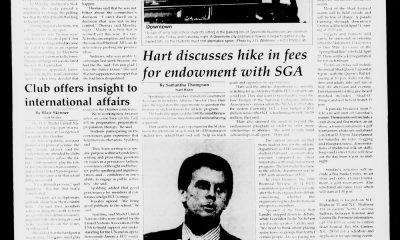
 High School Sports3 weeks ago
High School Sports3 weeks agoParents Speak Out As Trans Pitcher Throws Shutout In MN State Quarterfinals
-

 Professional Sports3 weeks ago
Professional Sports3 weeks ago'I asked Anderson privately'… UFC legend retells secret sparring session between Jon Jones …
-

 Health3 weeks ago
Health3 weeks agoOregon track star wages legal battle against trans athlete policy after medal ceremony protest
-

 Professional Sports3 weeks ago
Professional Sports3 weeks agoUFC 316 star storms out of Media Day when asked about bitter feud with Rampage Jackson
-

 Motorsports2 weeks ago
Motorsports2 weeks agoNASCAR Weekend Preview: Autódromo Hermanos Rodríguez
-
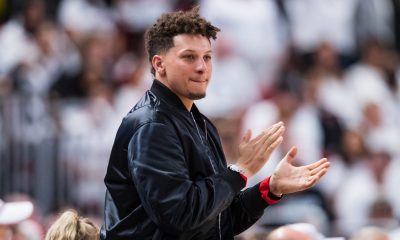
 NIL3 weeks ago
NIL3 weeks agoPatrick Mahomes in OKC for WCWS, praises NiJaree Canady and Texas Tech
-
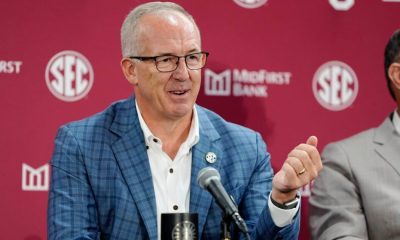
 NIL3 weeks ago
NIL3 weeks agoGreg Sankey fires jab at obstruction rule after controversial WCWS call in Texas vs. Texas Tech
-

 College Sports3 weeks ago
College Sports3 weeks agoFull 2025 Women’s College World Series Finals Schedule
-

 NIL3 weeks ago
NIL3 weeks agoNew Texas NIL bill signed into law by Gov. Abbott, opening revenue sharing with athletes
-

 NIL3 weeks ago
NIL3 weeks agoReport
































